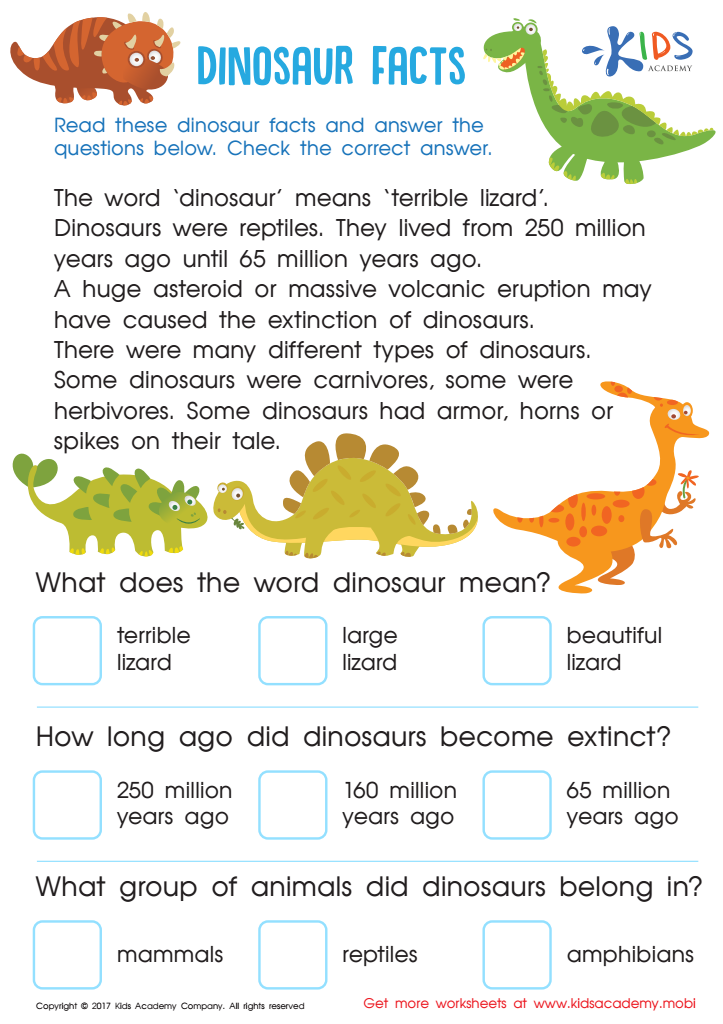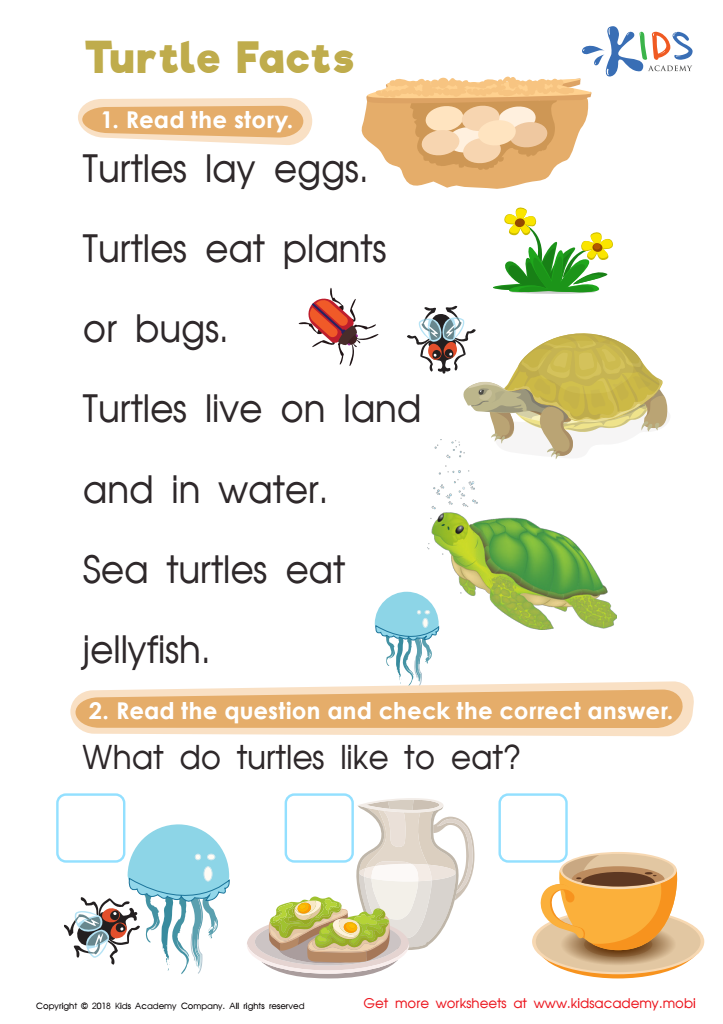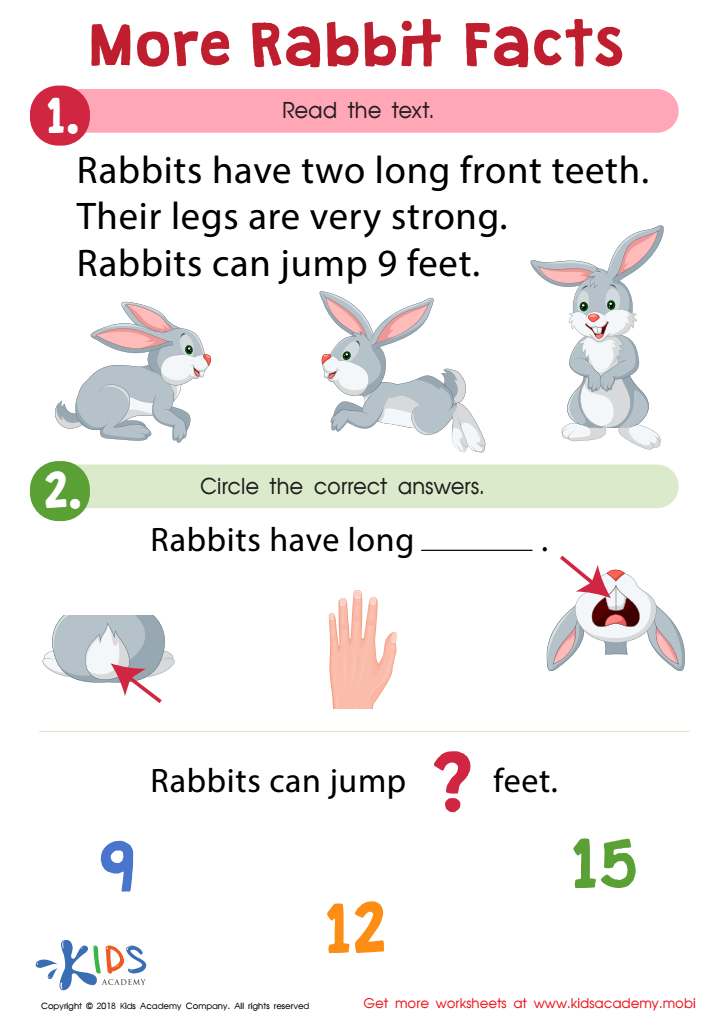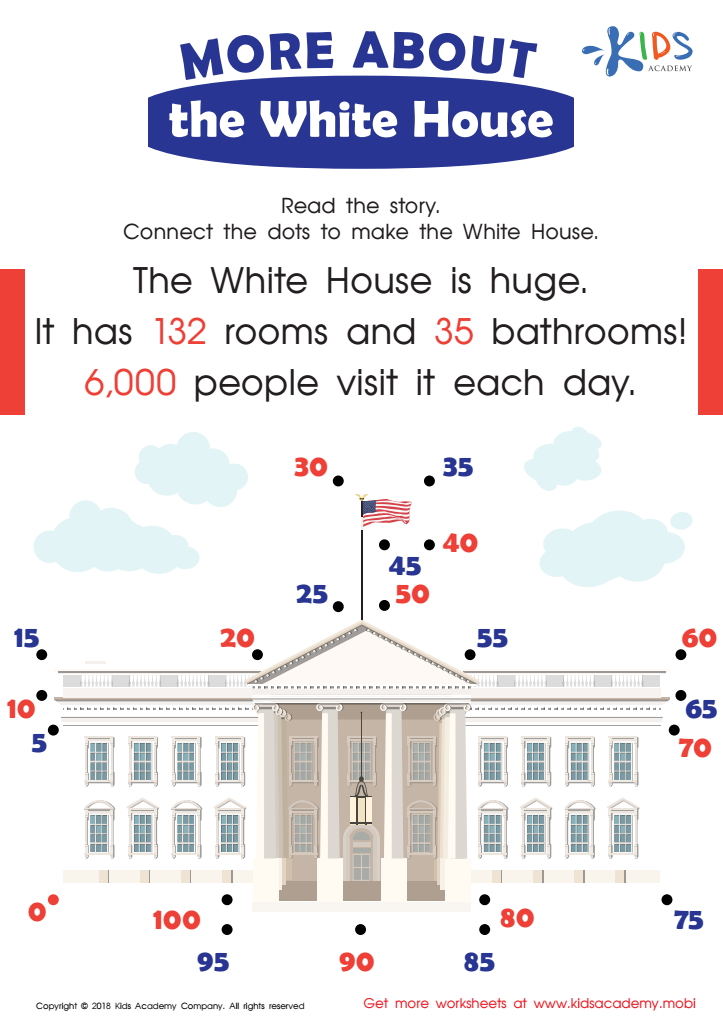Information retention Reading Non-Fiction Worksheets for Ages 3-9
4 filtered results
-
From - To
Discover our engaging "Information Retention Reading Non-Fiction Worksheets" designed for children ages 3-9! These worksheets help young learners improve their comprehension skills by focusing on essential information retention from factual texts. Through fun activities and age-appropriate content, children will develop critical thinking abilities as they learn to identify key information and recall details accurately. Our resources encourage a love for reading while promoting early literacy skills. Perfect for at-home learning or classroom use, these worksheets make non-fiction reading exciting and accessible. Equip your child with the tools they need to succeed in their educational journey today!


Dinosaur Facts Worksheet


Turtle Facts Worksheet


More Rabbit Facts Worksheet


More About the White House Worksheet
Parents and teachers should prioritize information retention in reading non-fiction for children ages 3-9 because this skill lays the foundation for lifelong learning. During these formative years, children are naturally curious and eager to explore the world around them. Non-fiction texts provide factual information that helps them understand various subjects, from science to history, fostering critical thinking and analytical skills.
Retention of information gained from non-fiction reading enhances comprehension and vocabulary development, empowering young learners to articulate their thoughts and ask informed questions. As they grasp concepts over time, they can connect new knowledge to prior experiences, building a richer, more nuanced understanding of their environment.
Moreover, instilling a habit of engaging with non-fiction can spark a passion for inquiry, making children more prepared for advanced education as they move into higher grades. Encouraging discussions about what they have read also aids retention, as active involvement in learning solidifies memory and comprehension.
Finally, developing strong information retention skills early boosts confidence in academic settings, providing a head start for future educational challenges. By supporting children's exploration of non-fiction, parents and teachers nurture inquisitive minds ready to tackle the complexities of the world.
 Assign to My Students
Assign to My Students
















